第24章
As The Rambler was entirely the work of one man,there was,of course,such a uniformity in its texture,as very much to exclude the charm of variety;and the grave and often solemn cast of thinking,which distinguished it from other periodical papers,made it,for some time,not generally liked.So slowly did this excellent work,of which twelve editions have now issued from the press,gain upon the world at large,that even in the closing number the authour says,'I have never been much a favourite of the publick.'
Johnson told me,with an amiable fondness,a little pleasing circumstance relative to this work.Mrs.Johnson,in whose judgement and taste he had great confidence,said to him,after a few numbers of The Rambler had come out,'I thought very well of you before;but I did not imagine you could have written any thing equal to this.'Distant praise,from whatever quarter,is not so delightful as that of a wife whom a man loves and esteems.Her approbation may be said to 'come home to his bosom;'and being so near,its effect is most sensible and permanent.
Mr.James Elphinston,who has since published various works,and who was ever esteemed by Johnson as a worthy man,happened to be in Scotland while The Rambler was coming out in single papers at London.With a laudable zeal at once for the improvement of his countrymen,and the reputation of his friend,he suggested and took the charge of an edition of those Essays at Edinburgh,which followed progressively the London publication.
This year he wrote to the same gentleman upon a mournful occasion.
'To MR.JAMES ELPHINSTON.
September 25,1750.
'DEAR SIR,You have,as I find by every kind of evidence,lost an excellent mother;and I hope you will not think me incapable of partaking of your grief.I have a mother,now eighty-two years of age,whom,therefore,I must soon lose,unless it please GOD that she rather should mourn for me.I read the letters in which you relate your mother's death to Mrs.Strahan,and think I do myself honour,when I tell you that I read them with tears;but tears are neither to YOU nor to ME of any further use,when once the tribute of nature has been paid.The business of life summons us away from useless grief,and calls us to the exercise of those virtues of which we are lamenting our deprivation.The greatest benefit which one friend can confer upon another,is to guard,and excite,and elevate his virtues.This your mother will still perform,if you diligently preserve the memory of her life,and of her death:a life,so far as I can learn,useful,wise,and innocent;and a death resigned,peaceful,and holy.I cannot forbear to mention,that neither reason nor revelation denies you to hope,that you may increase her happiness by obeying her precepts;and that she may,in her present state,look with pleasure upon every act of virtue to which her instructions or example have contributed.Whether this be more than a pleasing dream,or a just opinion of separate spirits,is,indeed,of no great importance to us,when we consider ourselves as acting under the eye of GOD:yet,surely,there is something pleasing in the belief,that our separation from those whom we love is merely corporeal;and it may be a great incitement to virtuous friendship,if it can be made probable,that that union that has received the divine approbation shall continue to eternity.
'There is one expedient by which you may,in some degree,continue her presence.If you write down minutely what you remember of her from your earliest years,you will read it with great pleasure,and receive from it many hints of soothing recollection,when time shall remove her yet farther from you,and your grief shall be matured to veneration.To this,however painful for the present,Icannot but advise you,as to a source of comfort and satisfaction in the time to come;for all comfort and all satisfaction is sincerely wished you by,dear Sir,your most obliged,most obedient,and most humble servant,'SAM.JOHNSON.'
The Rambler has increased in fame as in age.Soon after its first folio edition was concluded,it was published in six duodecimo volumes;and its authour lived to see ten numerous editions of it in London,beside those of Ireland and Scotland.
The style of Johnson was,undoubtedly,much formed upon that of the great writers in the last century,Hooker,Bacon,Sanderson,Hakewell,and others;those 'GIANTS,'as they were well characterised by A GREAT PERSONAGE,whose authority,were I to name him,would stamp a reverence on the opinion.
Johnson assured me,that he had not taken upon him to add more than four or five words to the English language,of his own formation;and he was very much offended at the general licence,by no means 'modestly taken'in his time not only to coin new words,but to use many words in senses quite different from their established meaning,and those frequently very fantastical.
Sir Thomas Brown,whose life Johnson wrote,was remarkably fond of Anglo-Latin diction;and to his example we are to ascribe Johnson's sometimes indulging himself in this kind of phraseology.Johnson's comprehension of mind was the mould for his language.Had his conceptions been narrower,his expression would have been easier.
His sentences have a dignified march;and,it is certain,that his example has given a general elevation to the language of his country,for many of our best writers have approached very near to him;and,from the influence which he has had upon our composition,scarcely any thing is written now that is not better expressed than was usual before he appeared to lead the national taste.